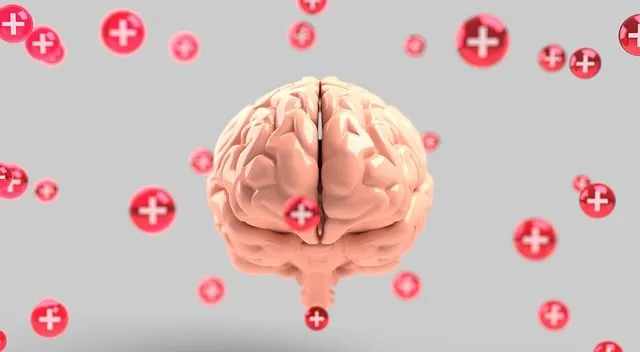Aurora Kaiser Permanente behavioral health services prioritize emotional regulation through teaching effective coping skills for stress management, preventing psychological disorders, and fostering resilience. By empowering individuals with confidence-boosting strategies, these services enable emotional control, reduce feelings of helplessness, and positively influence mental health policy advocacy. They emphasize emotional intelligence (EI) and mindfulness practices to manage emotions and build resilience, offering a holistic approach to mental well-being through evidence-based therapies, group sessions, and community outreach programs.
Coping skills development is an essential aspect of maintaining mental well-being, especially in today’s fast-paced world. This article explores strategies to enhance your ability to navigate life’s challenges. We delve into understanding coping skills, their significance in stress management, and identifying personal mechanisms. Effective strategies for managing stress are outlined, along with building resilience, a cornerstone of robust coping. Discover how Aurora Kaiser Permanente Behavioral Health Services offers valuable resources and support to empower individuals in their journey towards better mental health.
- Understanding Coping Skills and Their Significance
- Identifying Personal Coping Mechanisms
- Strategies for Effective Stress Management
- Building Resilience: A Key Component of Coping
- Aurora Kaiser Permanente Behavioral Health Services: Resources and Support
Understanding Coping Skills and Their Significance

Coping skills are a set of strategies individuals use to manage stress, overcome challenges, and maintain emotional balance. They play a pivotal role in mental health, as effective coping mechanisms can prevent the onset of anxiety, depression, and other psychological disorders. Aurora Kaiser Permanente behavioral health services recognize the profound impact of strong coping skills on overall well-being. By teaching and reinforcing these techniques, they aim to empower individuals to navigate life’s hurdles with resilience and adaptability.
In today’s fast-paced world, emotional regulation—a key component of coping skills—is essential for navigating the constant demands and stressors we face. Aurora Kaiser Permanente behavioral health services focus on promoting confidence-boosting strategies that enable people to regulate their emotions, making them better equipped to handle difficult situations. Moreover, understanding and applying these coping mechanisms can foster a sense of control, reduce feelings of helplessness, and positively influence one’s mental health policy analysis and advocacy efforts.
Identifying Personal Coping Mechanisms

Many people often underestimate their own capacity for resilience and coping skills. Identifying personal coping mechanisms is a fundamental step in enhancing one’s mental well-being, as recommended by behavioral health services at Aurora Kaiser Permanente. This process involves introspection to understand what strategies work best for managing stress and emotions. Some individuals find solace in physical activities like exercise or meditation, which are proven Stress Reduction Methods. Others may tap into their inner creativity through art or music, fostering Inner Strength Development.
Emotional Regulation is a key aspect of this journey. By recognizing triggers and patterns, one can develop more effective coping mechanisms tailored to their unique needs. This might include practicing mindfulness, journaling, or engaging in hobbies that provide a sense of calm and control. Behavioral health professionals at Aurora Kaiser Permanente emphasize the importance of exploring these personal tools for navigating life’s challenges and cultivating a healthier, more balanced state of being.
Strategies for Effective Stress Management

At Aurora Kaiser Permanente behavioral health services, we recognize that stress is an inevitable part of life, but it doesn’t have to overwhelm us. Effective stress management strategies are essential for maintaining good mental health and overall well-being. One powerful approach is practicing emotional intelligence (EI). EI involves recognizing and understanding your own emotions as well as those of others, which can help individuals respond calmly under pressure rather than reacting impulsively. This skill set promotes healthier coping mechanisms, enhancing one’s ability to navigate challenging situations.
In addition to depression prevention strategies, promoting mental health awareness through mindfulness practices is another effective method. Techniques like deep breathing exercises, meditation, and yoga encourage relaxation and help individuals detach from stressful thoughts. By incorporating these activities into daily routines, individuals can gain a sense of control over their stress levels, ultimately fostering resilience in the face of life’s challenges.
Building Resilience: A Key Component of Coping

Building resilience is a cornerstone of effective coping skills development, and Aurora Kaiser Permanente behavioral health services understand its profound impact on mental well-being. Resilience refers to the ability to adapt and bounce back from challenges, traumas, or stressful situations. It’s not about avoiding adversity but learning to navigate it effectively. By fostering resilience, individuals gain a sense of control over their lives, enabling them to face difficulties head-on with renewed energy and optimism.
The Public Awareness Campaigns Development plays a vital role in educating communities about building resilience as a proactive coping strategy. Encouraging positive thinking and promoting healthy coping mechanisms can significantly contribute to an individual’s ability to withstand life’s storms. Additionally, Healthcare Provider Cultural Competency Training is essential to ensure that professionals equipped with the knowledge and skills to support individuals in developing their inherent resilience, providing tailored guidance based on diverse cultural backgrounds and unique personal experiences.
Aurora Kaiser Permanente Behavioral Health Services: Resources and Support

Aurora Kaiser Permanente Behavioral Health Services offers a comprehensive range of resources and support to help individuals navigate through various challenges affecting their mental well-being. Their team of experts provides specialized care, focusing on evidence-based practices to promote healing and growth. Through individual therapy, group sessions, and community outreach programs, they aim to enhance coping skills development and foster mental health awareness.
The services prioritize mood management as a cornerstone of their approach, empowering patients with tools to regulate emotions effectively. By combining traditional therapies with innovative support systems, Aurora Kaiser Permanente ensures that individuals receive tailored assistance to overcome obstacles and thrive in their personal journeys towards better mental health.
Coping skills development is a vital aspect of maintaining mental well-being, as evidenced by the comprehensive strategies discussed. By understanding personal coping mechanisms and adopting effective stress management techniques, individuals can enhance their resilience—a cornerstone of Aurora Kaiser Permanente Behavioral Health Services’ approach to holistic care. With resources like these readily available, taking proactive steps toward better coping skills is within reach for everyone.






